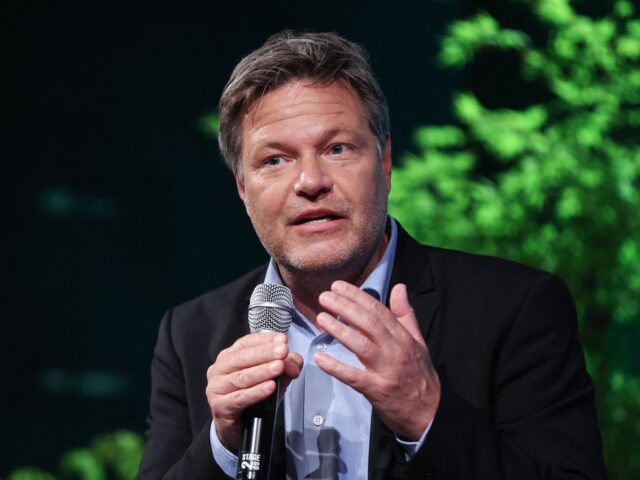German Vice Chancellor and Green Party politician Robert Habeck has proposed a scheme that would see the government subsidise up to 80 per cent of the electricity costs of certain industries amid the ongoing energy crisis induced by decades of failed green agenda policies and over-reliance on Russian gas.
Minister for Economic Affairs and Climate Action Robert Habeck has proposed a plan that would guarantee large swaths of German industry electricity prices at a subsidised price of €0.06 per kilowatt hour (kWh) until at least 2030. Currently, the average electricity cost for businesses in Germany stands at around €0.25 per kWh including taxes.
According to Deutsche Welle, the plan would mean that certain industries would see up to 80 per cent of their energy costs subsidised by the taxpayer, who would be on the hook for an estimated €25 billion and €30 billion, however, this figure could rise of course rise depending on the international price of energy, which can be heavily influenced by world events, as the Germans learned following the invasion of Ukraine last year.
Yet, the proposal from Habeck may face some opposition, with the so-called ‘traffic light’ coalition government of Chancellor Olaf Scholz becoming increasingly divided on economic matters. Indeed, one of the main partners of the coalition and current finance minister, Christian Lindner of the pro-free market Free Democratic Party (FDP) expressed his opposition to “extremely expensive subsidies”, which he said were inefficient as well as unfair, the Financial Times reported.
Meanwhile, a spokesman for Chancellor Scholz said that he believed in “electricity prices that industry and consumers can afford without being permanently subsidised,” adding: “We now have to discuss exactly how to get there.”
How to Ruin an Economy: Germany to Ban New Gas and Oil Heaters in Buildings by Next Year https://t.co/6x0Rhc2jtQ
— Breitbart London (@BreitbartLondon) April 22, 2023
The proposal may receive some pushback at the Brussels level as well, with European Commission having the final say on matters of state subsidies and some countries within the bloc likely to oppose the move given that it would create an unfair competitive advantage over their own domestic industries.
Some have blamed the need for business subsidies on the German government’s longstanding push to try to shift to so-called green sources of energy such as wind and solar, a policy that was exposed last year when the country suffered under rampant inflation, people and businesses forced to ration their energy usage, and tens of billions of euros being wiped from the German economy.
In order to make up for the shortcomings of the allegedly renewable forms of energy over the past decade, Germany increasingly relied on natural gas imported from Russia, despite warnings from some including former President Donald Trump that Berlin would become a “captive” of Moscow.
Stunningly, even after gas imports dried up following the invasion of Ukraine and the subsequent sanctions from the West on Russia, Chancellor Olaf Scholz followed through with plans from his predecessor, Angela Merkel, to shut down the country’s remaining nuclear power stations.
Commenting on the effective bailout for the green failures, assistant professor of international relations at Webster Vienna Private University, Ralph G. Schoellhammer wrote on social media: “Who am I to advise the German Chancellor, but maybe they should have discussed this BEFORE shutting down their entire nuclear fleet.
“How much more evidence is necessary to see the absolute cluelessness in energy questions of the German government?”
Donald Trump’s warning that Germany’s dependence on Russian gas left it vulnerable has been proven — yet again — as the country’s leftist government’s plans to go green have been utterly destroyed by the Ukraine war and its attendant gas shortages.https://t.co/82ot4EAPgx
— Breitbart London (@BreitbartLondon) December 1, 2022

COMMENTS
Please let us know if you're having issues with commenting.